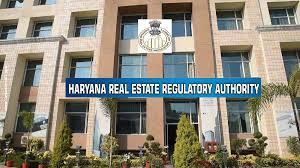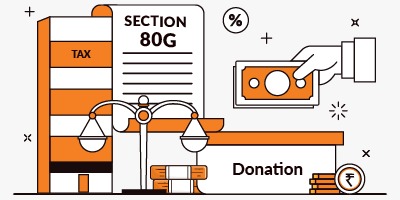Tejinder Singh Dhindsa, J.@mdashChallenge in the instant writ petition is to the order dated 9.4.2014, Annexure P5, whereby the medical reimbursement claim raised by the petitioner on account of expenses incurred on the treatment of his father has been declined. Brief facts are that the petitioner is working as a Jail Warder under the Department of Home, State of Haryana. In the month of February 2013, father of the petitioner, namely, Shri Hira Lal fell ill and was admitted at the Medicity Medanta Hospital, Gurgaon for treatment of a heart ailment. Father of the petitioner remained admitted in Hospital from 7.2.2013 to 13.2.2013 and was stated to have undergone an invasive procedure whereby stents were inserted. The petitioner claims to have spent an amount of Rs. 6,53,150/- on the treatment of his father. The petitioner submitted an application to the Jail Superintendent, Jhajjar along with the requisite certificate duly filled up for medical reimbursement of the medical bills in respect of the treatment undergone by his father along with the supporting bills from the Hospital concerned. It has been pleaded that the application was forwarded to the Director General, Jails, Haryana upon verification of the bills and with recommendations for reimbursement of the claim as per PGI rates. It has also been averred in the petition that the Jail Superintendent had earlier marked the application/claim of the petitioner to the Additional Superintendent, District Jail, Jhajjar and in pursuance thereof, a report dated 7.10.2013 had been submitted with the observations that father of the petitioner had undergone treatment for the heart ailment at Medanta Hospital, Gurgaon and apart from old age pension, is dependent on agriculture. Upon the claim of the petitioner having been duly processed, the impugned memo dated 9.4.2014 at Annexure P5 had been issued and as per which Tehsildar, Rania had verified that father of the petitioner, namely, Hira Lal has 77 Kanal 14 Marlas agriculture land in his name in the village and the annual income from this land is about Rs. 2,10,000/-. Further, as per impugned memo, father of the petitioner also has 35 Kanal 5 Marlas of land in village Kussar and the annual income of which has been assessed to be Rs. 80,000/-. Government instructions dated 14.12.2007 have been relied upon while rejecting the claim of the petitioner stating that income of the dependent is not to exceed Rs. 3500/- per month.
2. Mr. SK Verma, learned counsel for the petitioner has argued that respondent No. 2 has not taken into account the fact that father of the petitioner was almost 65 years of age and being a senior citizen was not able to do any work and as such, was to be construed as fully dependent on his son i.e. the present petitioner. Further contention raised is that even under the Punjab Medical Attendance Rules, 1940 and Punjab Government letter dated 25.3.1958, family has been defined as "a Government Servant''s wife and husband in the case of female Government servants, who is residing with and wholly dependent on him/her, legitimate children, step children, legally adopted children and parents, widowed daughters residing with and wholly dependent on him/her" and father of the petitioner would come within the definition of family being wholly dependent upon him and as such, the claim for medical reimbursement of bills incurred on the treatment of his father had to be accepted. Heavy reliance has also been placed upon the judgment of Hon''ble Supreme Court of
3. Learned counsel has also referred to a Division Bench judgment of this Court in
4. Having heard learned counsel for the petitioner at length and having perused the case paper book, this Court is of the considered view that no basis for interference in the impugned order dated 9.4.2014, Annexure P5, is made out. Such view is being taken on account of the following reasons.
5. Firstly, learned counsel for the petitioner has not disputed the factual matrix that father of the petitioner owns 77 Kanal 14 Marlas agriculture land at village Ghorawali, Tehsil Rania, District Sirsa and for which an annual income of Rs. 2,10,000/- stands assessed. Even the ownership of 35 Kanal 5 Marlas land in village Kussar in the name of father of the petitioner and for which annual income of about Rs. 80,000/- has been assessed, has not been disputed. Even though it may be correct that while examining dependency, mere financial dependence may not be the sole factor, but it is certainly one of the relevant and primary parameters. It is not the case made out on behalf of the petitioner that his father on account of his age or heart ailment was incapacitated to such an extent that he was ''wholly dependent'' upon him and could not indulge in the role of an agriculturist.
6. There is yet another aspect of the matter. The discretion vested with the competent authority while examining the issue as regards a member of the family being dependent on the Government servant is not wholly unfettered. In the present case, concededly the Commissioner and Secretary to Government Haryana, Health Department has issued instructions dated 14.12.2007 at Annexure P7 on the subject of Punjab Medical Attendance Rules, Dependents on State Government Employees wives/sisters and wherein it has been decided to increase the ceiling of income of dependents from Rs. 750/- to Rs. 3500/- per month for the purpose of medical re-imbursement. There is no challenge to such instructions dated 14.12.2007. As such, while examining the claim of the petitioner seeking medical reimbursement of the expenses incurred on the treatment of his father, the instructions dated 14.12.2007 would apply. The impugned order has been passed by taking cognizance of a factual position whereby father of the petitioner would have a monthly income far in excess of Rs. 3,500/-.
7. This Court would have no hesitation in holding the impugned order dated 9.4.2014 at Annexure P5 to have been passed on valid and cogent reasoning. The writ petition is, accordingly, dismissed.

